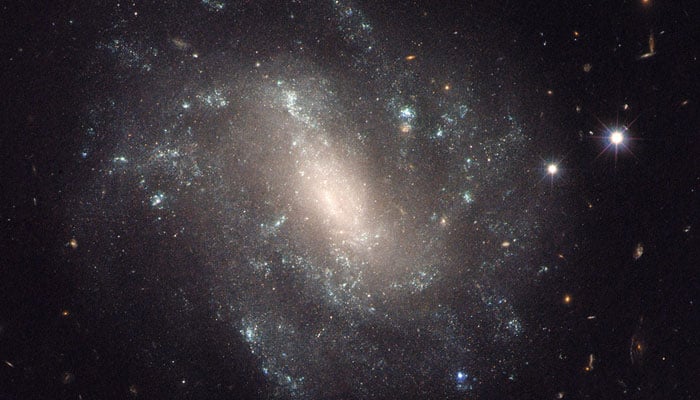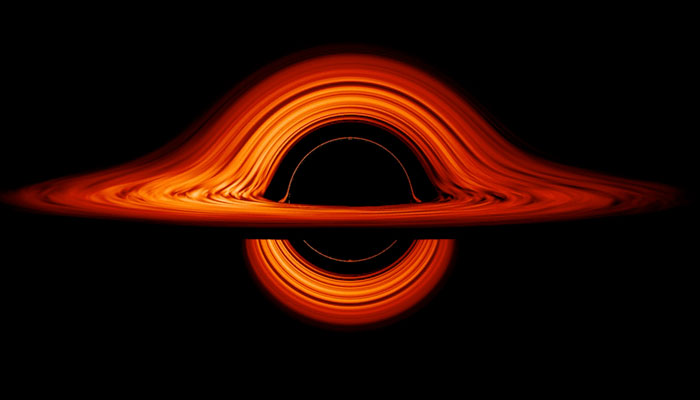Scientists may have found answer of how would universe end
"Objects without an event horizon, such as the remnants of dead stars also have this radiation," says the author
June 04, 2023

In an attempt to anticipate how the universe could end, scientists in their new study suggested it will simply evaporate, a study published in the journal Physical Review Letters stated.
The experts from Radboud University observed Stephen Hawking's theory about the death of black holes Hawking radiation, which the theoretical physicist predicted in 1974.
The quantum physics theory and Einstein's theory of gravity suggest that particles spontaneously form and annihilate under the intense gravitational environment located at the mouths of black holes, also called the event horizon.
Hawking calculated that sometimes these particles are stuck behind the event horizon, but others escape to the outside in the form of Hawking radiation.
Over time, these particles lead to the evaporation of the black hole.
A similar phenomenon was detected around a black hole that is present in our universe. It also endorses late Hawking’s prediction about evaporation.
Earlier scientists have looked in black holes to observe the phenomena but this study suggested that other objects without event horizon also contain these radiations.

The study author Heino Falcke said in a statement that "objects without an event horizon, such as the remnants of dead stars and other large objects in the universe, also have this sort of radiation."
"And, after a very long period, that would lead to everything in the universe eventually evaporating, just like black holes."
The scientists proposed in the study that you don't necessarily need extreme gravitational environments for Hawking radiation to exist, but anything with mass that warps the fabric of space-time could trigger this radiation.
"We show that far beyond a black hole the curvature of space-time plays a big role in creating radiation," said co-author of the study Walter van Suijlekom said in a statement.
The findings and calculations made by scientists will require further study and analysis including evidence to confirm the predictions.
If it is true, then it will not be evaporating in the near future.
Researchers have estimated that it takes black holes longer than the universe's age to evaporate, but the time remains unclear.









